About

Overview
The Philomathia Center plays a key role in advancing UC Berkeley's innovative research programs in energy and climate research. Established in 2012, the Philomathia Center represents the enduring partnership between UC Berkeley and the Philomathia Foundation in support of a common vision of improving humankind through the creative application of technology, independent thinking, and a commitment to education.
The Philomathia Foundation’s support of innovative research and education is bringing some of our best minds together, transcending the confines of disciplines and departments to work on the world’s most urgent scientific challenges and endeavors.
The Philomathia Foundation is a private charitable organization, registered in Canada and Hong Kong, dedicated to improving the human condition through the support of innovative, forward-thinking individuals and ideas. The driving force behind the Foundation is the belief that knowledge and research should not be contained and focused within a single discipline, but rather used creatively to solve problems across disciplines and across cultures.
The Foundation was formed in 2004 by the Chung brothers, who share a dedication to furthering knowledge and solving humanity’s problems through novel applications of research and technology.
Through its targeted donations to leading Canadian research universities and its ever-expanding scholarship programs, the Canadian Foundation is creating new pathways through which innovative ideas and creative minds can more easily enter the global arena and make lasting impacts on the human condition.
The Hong Kong Foundation is responsible for supporting research and education internationally. Several sites in different countries have been chosen to lead the development of solutions to global concerns. It also strives to promote and assist the exchange of ideas among scientists and scholars from different continents.
Philomathia Foundation Chair in Alternative Energy
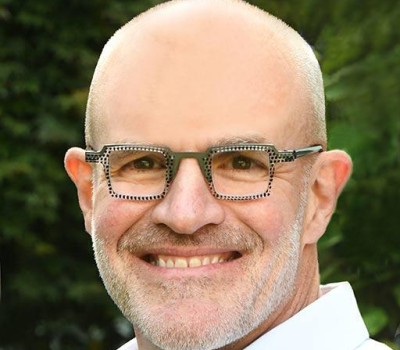
Jay Keasling was appointed to the Philomathia Chair in Alternative Energy in summer 2018. A professor in the Department of Chemical and Biomolecular Engineering and the Department of Bioengineering, Dr. Keasling holds a Senior Faculty Scientist position at Lawrence Berkeley National Laboratory, and serves as the CEO of Joint BioEnergy Institute.
He is a pioneer in engineering microbes and metabolism. During the early 2000s, he led a UC Berkeley research team to use engineered yeast to synthetically produce artemisinin, the powerful anti-malarial drug. Researchers at the Keasling Lab are now using the same technology to produce other pharmaceuticals, commodity chemicals, and cellulosic biofuels. Learn more here.
Former chairholders include Chris Somerville, a professor emeritus in the Department of Plant and Microbial Biology and the former Director of UC Berkeley'sEnergy Biosciences Institute. Prior to joining UC Berkeley, Dr. Somerville was a professor at Stanford University and the Director of the Carnegie Institution for Science from 1994-2007.
The inaugural chairholder was Dr. Stephen Chu who held the chair from its establishment until his departure from UC Berkeley in the fall of 2008 when he accepted the nomination to serve as the U.S. Secretary of Energy. Prior to becoming U.S. Secretary of Energy, Dr. Chu served as a Professor of Physics at UC Berkeley and as the Director of the Lawrence Berkeley National Laboratory.
Philomathia Graduate Fellowship in Environmental Sciences
The Philomathia Graduate Student Fellowship in the Environmental Sciences (formerly the Chang-Lin Tien Graduate Fellowship in the Environmental Sciences) provides fellowships for graduate students studying issues related to the environment at UC Berkeley. Students are nominated to receive the award on the basis of their high level of academic distinction and exceptional promise.
Candidates are drawn from a wide range of disciplines and departments on the UC Berkeley campus, including but not limited to, Molecular and Cell Biology, Integrative Biology, Chemistry, Physics, Bio-Engineering, Environmental Engineering, Computational Science, Geology, Agriculture and Resource Economics, Energy and Resources Group, School of Public Health and the College of Natural Resources. Recommendation of Philomathia Graduate Student Fellowship candidates will be made by a Philomathia Graduate Student Fellowship Program Committee.
A call for nominations for Philomathia Graduate Student Fellowship in the Environmental Sciences is made each spring. Nominations must be made by a UC Berkeley faculty member. Students may not self-nominate.
The 2026 deadline for faculty nominators to submit a nomination is April 13, 2026 by 6:00 PM. Please submit your nomination using the form linked here. The frequently asked questions section below provides more details on the awards. For additional questions, please send an email to research@berkeley.edu.
Frequently Asked Questions
- What are the awards?
Typically, each award is in the range of $20,000 for a period of one year.
- How can the fellowship funds be used?
This fellowship provides support together with other support the graduate student might have from their department, the university, foundations, or grant support. Philomathia Graduate Student awards are stipends paid directly to the student.
- What are the eligibility requirements for these awards?
- Graduate students must be in good standing at the time of application.
- Priority is given to candidates who can demonstrate that support from the program is essential for completing their degree. Students who already have full fellowship support covering their tuition and stipend are not eligible.
- The Philomathia Graduate Student Fellowship is typically awarded to students in years 3-4 of their PhD programs and who have a proven record of research accomplishments and publications.
- How will the stipends be distributed?
Stipends will be divided evenly between the Fall and Spring semesters, either as lump sum payments or monthly disbursements. Stipends are paid directly to the student.
- Who is on the selection committee?
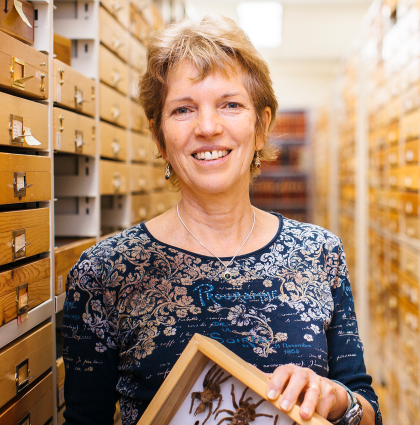 Rosemary Gillespie is the William M. and Esther G. Schlinger Chair in Systematic Entomology and a professor of Environmental Science, Policy & Management. Her research focuses on insects and spiders that comprise much of life's diversity and are critical for functioning ecosystems. Her focus is on the elucidation and conservation of this biodiversity in order to maintain the life-support system provided by nature's variety, and the living resources necessary for ecologically sustainable development.
Rosemary Gillespie is the William M. and Esther G. Schlinger Chair in Systematic Entomology and a professor of Environmental Science, Policy & Management. Her research focuses on insects and spiders that comprise much of life's diversity and are critical for functioning ecosystems. Her focus is on the elucidation and conservation of this biodiversity in order to maintain the life-support system provided by nature's variety, and the living resources necessary for ecologically sustainable development.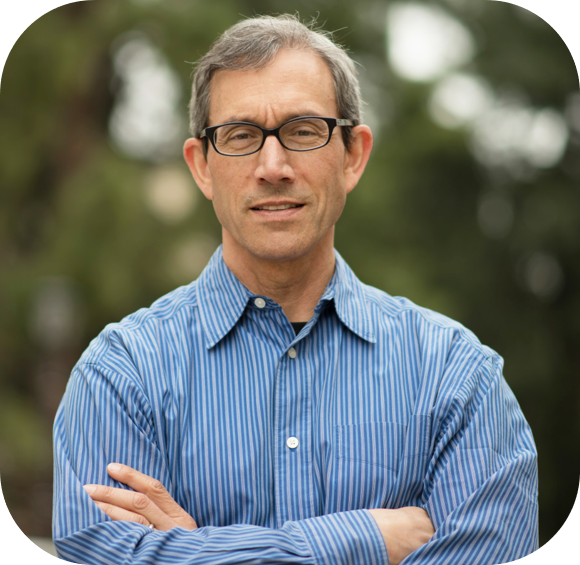
Krishna Niyogi is an HHMI Investigator, a Distinguished Professor in the Department of Plant and Microbial Biology, an Investigator at the Innovative Genomics Institute, and a Faculty Scientist in the Molecular Biophysics and Integrated Bioimaging Division at Lawrence Berkeley National Laboratory. His long-term research goals are to understand how photosynthetic energy conversion works, how it is regulated, and how it might be improved to help meet the world’s needs for food, fuel, and carbon sequestration to fight climate change.
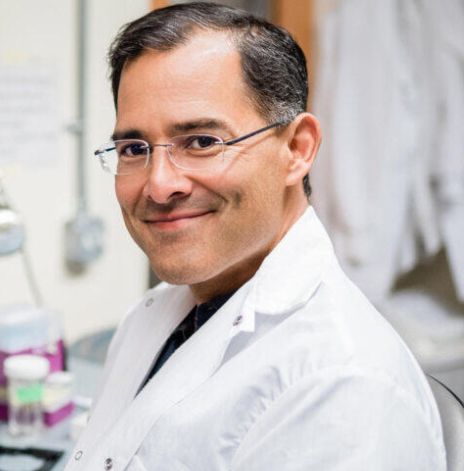
David Schaffer is the Hubbard Howe Distinguished Professor of Chemical and Biomolecular Engineering, Bioengineering, and Molecular and Cell Biology, as well as the Director of QB3, Bakar Labs, and the Bakar Fellows Program. New initiatives include the Bakar Climate Labs, which will include a building for climate technology startup companies, along with programs to support and accelerate their progress. David’s research focuses on gene and cell therapies to treat human disease, and he has co-founded 7 companies based on his work and helped advance his lab's technologies into >10 human clinical trials.
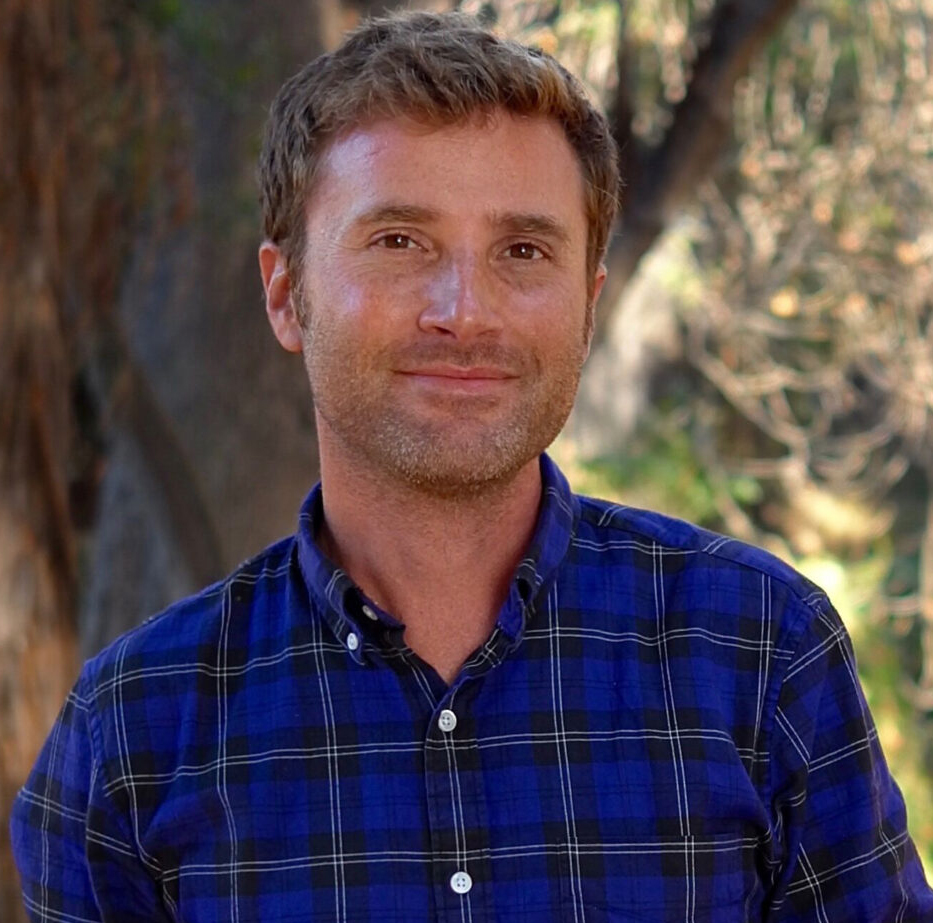
Noah Whiteman is Professor of Genetics, Genomics, Evolution and Development in the Department of Molecular & Cell Biology and the Department of Integrative Biology. He is also the Director of the Essig Museum of Entomology. His laboratory focuses on understanding why and how organisms deploy toxins as weapons that they use in offense and defense.
Past Programs
Innovation Seed Fund
A robust innovation seed fund program for energy research gives UC Berkeley researchers the opportunity to pursue cutting-edge, exploratory work — to bring our leading researchers together across disciplines, academic departments, and schools to promote breakthrough science and generate high payoffs. Seed funding is a critical “bridge” for many research teams, providing time to pursue ideas, establish a track record, and secure substantial long-term funding.
The Philomathia innovation seed fund awards have been focused on multidisciplinary projects that address current gaps in the scientific, technological, and policy areas of Berkeley’s renewable energy portfolio, as well as projects that further define the frontiers of energy science and policy with the strong potential for scalability and implementation. Projects creating synergies among ongoing campus and Berkeley Lab efforts were especially encouraged.
In 2011/12 the Philomathia seed fund award supported researchers evaluating the efficacy of residential energy-efficiency programs in the United States. The 2012/13 award supported researchers working on energy challenges confronting unelectrified rural communities in Kenya; and the 2013/14 awardees completed work on projecting wildfire events as a result of a rapidly warming climate in the western United States.
- Philomathia Seed Fund Award 2013/14
Project Description
A COMMUNITY CLIMATE ACTION TOOL FOR U.S. CITIES AND COUNTIES
- Professor Dan Kammen (Energy and Resources Group)
- Chris Jones (Energy and Resources Group)
The goal of this project is to create a user-‐friendly online platform for city planners, residents, businesses and other actors to quickly identify the most promising greenhouse gas reduction strategies for any U.S. city. This project will build upon work previously conducted for the California Air Resources Board to develop a Local Government Decision-‐Support Tool (LGDST) for California. The LGDST is a spreadsheet-‐based tool that allows cities to 1) instantly view an estimate of greenhouse gas emissions resulting from all households, businesses and local government operations in the community, 2) evaluate the greenhouse gas reductions and financial costs and savings from a list of 60+ common measures, and 3) adjust any assumptions in the tool to develop a customized climate action plan for the community.
Unlike other GHG planning tools the LGDST’s smart default settings allow analysts to instantly engage with a default climate action plan that highlights the actions with the most potential in each community. The project team specifically intends to: 1) extend the smart default settings in the tool to all U.S. cities or counties, 2) increase the number of GHG mitigation measures from 40 to at least 60, and 3) develop an integrated open source application programming interface (API) that can be used to develop multiple third party software tools, (4) create a user-‐friendly user interface so city planners and residents can quickly develop customized climate action plans for each city, while learning from the input of other users, and 5) document the work in papers and public fora to increase transparency and public awareness of the tool’s benefits and limitations.
Project Description
CLIMATE, WEATHER AND FIRE: PROJECTING WILDFIRE EVENTS IN A WARMER WORLD
- Professor David Ackerly (Integrative Biology)
- Professor Max Moritz (Environmental Science, Policy and Management)
- Professor William Collins (Lawrence Berkeley National Laboratory, Earth Sciences Division)
This project team aims to develop and calibrate a new model for the occurrence and severity of large wildfires (>1000 acres) using historical data for California, and then to use the model to project the frequency and distribution of fire events under warmer future climates. The project will fill a gap in existing models of fire frequency and distribution, combining the PIs skills in modeling of vegetation, fire and global climate. The calibrated and extensible model we propose to develop would address the critical need for improved prediction of extreme events at local to regional scales enhancing societal resilience and contributing to climate adaptation planning to reduce loss of infrastructure in the face of rapid climate change.
Spring 2015 Update: Forecasting Change, Welcome or Not
- Philomathia Seed Fund Award 2012/13
Project Description
ITERATIVE DESIGN AND ECONOMIC ANALYSIS OF A SOLAR-POWERED DC MICROGRID FOR UNELECTRIFIED RURAL COMMUNITIES
- Professor Eric Brewer (Electrical Engineering and Computer Science)
- Professor Edward Miguel (Economics)
- Professor Seth Sanders (Electrical Engineering and Computer Science)
 Roughly 1.3 billion people in developing countries still live without access to reliable electricity. These households will drive most of the medium-term growth in energy consumption. As expanding access using current technologies will accelerate global climate change, we must find novel solutions that displace fossil fuels and are financially viable for developing regions. The overarching goal of this team of engineers and economists is to design, build and field-test a scalable, sustainable electrification system based on renewable generation, for communities that are unlikely to gain access to the grid in the near term. They plan to do this by capturing high quality information about household energy demand in developing countries, and using these data to design and pilot a novel microgrid technology with innovative metering, payment and operating models in rural Kenya.This will be the first project to study the economic and technological aspects of rural electrification in Kenya from both on- and off-grid perspectives, with direct implications for other developing countries.
Roughly 1.3 billion people in developing countries still live without access to reliable electricity. These households will drive most of the medium-term growth in energy consumption. As expanding access using current technologies will accelerate global climate change, we must find novel solutions that displace fossil fuels and are financially viable for developing regions. The overarching goal of this team of engineers and economists is to design, build and field-test a scalable, sustainable electrification system based on renewable generation, for communities that are unlikely to gain access to the grid in the near term. They plan to do this by capturing high quality information about household energy demand in developing countries, and using these data to design and pilot a novel microgrid technology with innovative metering, payment and operating models in rural Kenya.This will be the first project to study the economic and technological aspects of rural electrification in Kenya from both on- and off-grid perspectives, with direct implications for other developing countries.Spring 2015 Updates: The Economics of Change
- Philomathia Seed Fund Award 2011/12
Project Description
RECONCILABLE DIFFERENCE? EXAMINING THE GAP BETWEEN ENGINEERING PROJECTIONS AND EX-POST RELIZED GAINS FROM ENERGY EFFIENCY INVESTMENTS
- Professor Meredith Fowlie (Agricultural and Resource Economics)
- Professor Catherine Wolfram (Business)
Economists Catherine Wolfram (left) and Meredith Fowlie carried out a rigorous study that found surprisingly low savings relative to costs in part of a nationwide effort to improve home energy-efficiency. Photo: Peg Skorpinsk
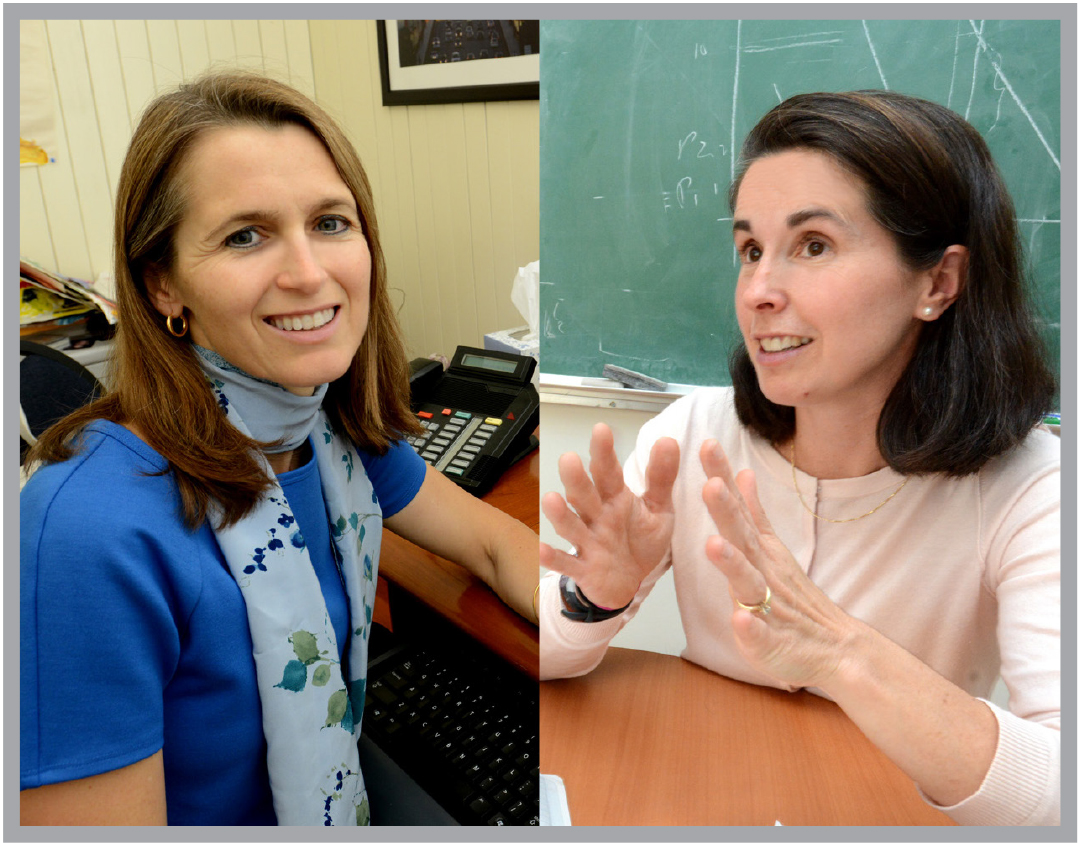
Economists Catherine Wolfram (left) and Meredith Fowlie carried out a rigorous study that found surprisingly low savings relative to costs in part of a nationwide effort to improve home energy-efficiency. Photo: Peg Skorpinsk Professors Fowlie and Wolfram are conducting a state-of-the-art evaluation of the nation’s largest residential energy-efficiency program: the Weatherization Assistance Program (WAP). The American Recovery and Reinvestment Act (ARRA) committed $5 billion over two years to this important initiative. Federal funds are being used to improve the energy performance of dwellings of low-income families. The primary objective of this research project is to estimate household-level impacts of the energy‐efficiency retrofits administered through WAP and similar utility‐funded programs. The researchers will measure the direct causal impacts of weatherization on energy consumption and expenditures. The researchers will also examine the persistent gap between engineering projections and ex post realized savings from investments in residential energy-efficiency improvements. In particular, they will investigate behavioral responses to household efficiency improvements which can lead to increased demand for energy services.
This work will facilitate a comparison of WAP's cost effectiveness relative to other programs that aim to reduce the negative externalities associated with energy consumption. Importantly, this analysis relies on a randomized control trial so the results will be highly credible. The project thus demonstrates proof of an important concept. There is broad consensus in the social-science research community that, under certain conditions, well-designed and implemented randomized control trials provide the most valid estimate of an intervention’s impact on outcomes of interest. There is no precedent for incorporating random assignment into energy-efficiency policy evaluation. The research will demonstrate how random assignment can be used to generate estimates of energy-efficiency policy impacts that are transparent, simple to explain, and free of selection bias.Spring 2015 Update: Putting Energy Savings Programs to the Test
Research Fellows Program
About the Philomathia Fellows Program at UC Berkeley
The Philomathia Fellows Program was established in 2013 with generous support from the Philomathia Foundation. The Philomathia Fellows Program was designed to attract and support a Fellow with a special interest in cutting-edge research on energy systems and/or climate change, to build research capacity, and to foster a robust community of faculty, students and staff engaged in education and interdisciplinary research activities. We welcomed a broad range of proposed research agendas, with the primary criteria for selection being (1) the quality of individual’s track record and future projects, along with (2) the expected impact of the Fellow’s work and (3) the prospects for developing new interdisciplinary collaborations during the Fellowship period. We are particularly interested in applicants whose work will lead to both academic publications and substantive engagement with external business, media, and/or policy communities.
In addition to conducting cutting-edge research in energy and/or climate change, the Philomathia Fellow was expected to participate in
- Monthly faculty steering committee meetings;
- Quarterly external advisory board meetings;
- Our annual Philomathia Forum;
- Opportunities that arise to build relationships with new partners on campus, at LBNL, and outside the academic environment.
The Fellowship was a two year appointment that included a competitive salary, benefits and a $25,000 research fund. Successful candidates for this Fellowship have a Ph.D in a discipline related to energy and climate. Examples include, but are not limited to architecture, biology, chemistry, computer science, engineering, law, public policy, social science, urban planning, as well as interdisciplinary environmental programs.
- PHILOMATHIA RESEARCH FELLOWS 2016-18
Alexander Forse joined UC Berkeley as a Philomathia Research Fellow in 2016 after completing postdoctoral work in Chemistr
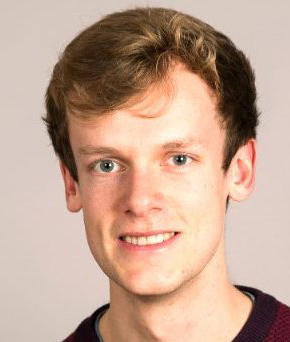 y at the University of Cambridge, UK. Alexander studied Natural Sciences (M.Sci.) at the University of Cambridge. He continued at Cambridge with graduate research in the group of Professor Clare Grey in the Department of Chemistry, and received his Ph.D. in 2015 for work on the development and application of nuclear magnetic resonance (NMR) spectroscopy to the study of supercapacitors. By carrying out NMR experiments on working supercapacitor devices, the molecular processes underlying charging and discharging were unravelled. Recent post-doctoral work has shown how charging dynamics can be probed in supercapacitor electrodes using magnetic resonance methods.
y at the University of Cambridge, UK. Alexander studied Natural Sciences (M.Sci.) at the University of Cambridge. He continued at Cambridge with graduate research in the group of Professor Clare Grey in the Department of Chemistry, and received his Ph.D. in 2015 for work on the development and application of nuclear magnetic resonance (NMR) spectroscopy to the study of supercapacitors. By carrying out NMR experiments on working supercapacitor devices, the molecular processes underlying charging and discharging were unravelled. Recent post-doctoral work has shown how charging dynamics can be probed in supercapacitor electrodes using magnetic resonance methods.In 2016 Alexander was honored with a prize for the best Ph.D. thesis from the Royal Society of Chemistry Energy Sector. He was also the recipient of the Sims Scholarship for Ph.D.s awarded for outstanding merit and promise in Chemistry, the Emeleus Prize for distinction in inorganic chemistry (Cambridge University, Department of Chemistry) as well as the Johnson Matthey Prize for the best inorganic research project (Cambridge University, Department of Chemistry).
At UC Berkeley, Alexander’s work will focus on the study of porous materials for carbon dioxide capture and storage (CCS). CCS can play an important role in reducing anthropogenic carbon dioxide emissions in the coming decades. Magnetic resonance methods will be developed to study the mechanisms and kinetics of carbon dioxide storage in new CCS materials. A detailed understanding of the sorption processes at the molecular level will facilitate the design of improved materials. Experiments will be carried out under realistic operating conditions for post-combustion CCS, such that the effects of hydrostatic and mechanical pressure can be understood and controlled. He will be working closely with Professors Jeffrey R. Long and Jeffrey A. Reimer.
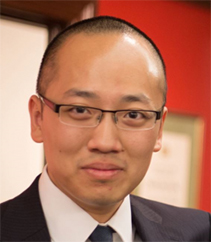
Junling Huang joined UC Berkeley as a Philomathia Fellow in September 2016, after completing his postdoctoral study at Belfer Center for Science and International Affairs, John F. Kennedy School of Government, Harvard University.
At UC Berkeley, Junling is a team member at the Joint Research Center on Energy and Climate Change. His research interests include China’s energy and climate policy, China’s science and technology policy, and China’s governance.
Junling received a Ph.D. in Engineering Sciences from John A. Paulson School of Engineering and Applied Sciences, Harvard University in 2014. His thesis research investigated the prospects for wind in a climate-friendly energy future.He earned a B.S. from School of Physics, Peking University in 2009.
- PHILOMATHIA RESEARCH FELLOW 2013-15
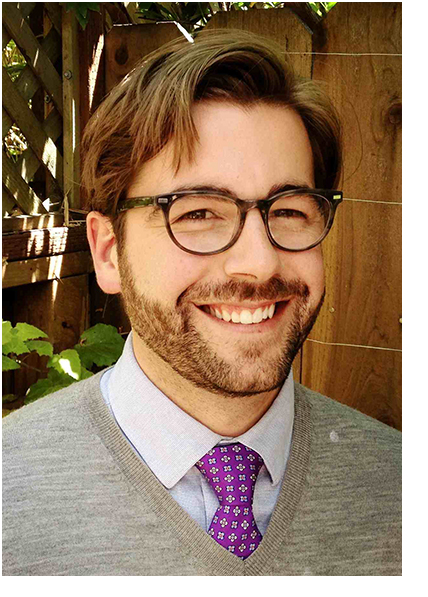 Danny Cullenward joined UC Berkeley as a Philomathia Research Fellow in September 2013, after completing his J.D. at Stanford Law School and his Ph.D. in Environment & Resources (E-IPER) at Stanford University.
Danny Cullenward joined UC Berkeley as a Philomathia Research Fellow in September 2013, after completing his J.D. at Stanford Law School and his Ph.D. in Environment & Resources (E-IPER) at Stanford University.Danny was the first J.D./Ph.D. student in E-IPER, where he was a David and Lucile Packard Foundation Stanford Graduate Fellow. His thesis research integrated insights from energy economics and law to support the development of effective, science-based climate policy at the state and federal levels. Working through Stanford’s Environmental Law Clinic, Danny focused on strengthening California’s climate policy through litigation, public comments, and regulatory development processes. With colleagues in engineering and law, he also created new methods for assessing the distributional impacts of national carbon tax legislation on household expenditures.
Before graduate school, Danny worked for MAP Royalty, Inc., an energy investment company in Palo Alto. At MAP, he was responsible for supporting energy education at Stanford, including co-teaching the University’s largest energy class and organizing a field research seminar to visit major energy installations in China. Previously, Danny was a Research Associate with the Program on Energy and Sustainable Development, where he conducted fieldwork on energy policy in China, India, Brazil, and Norway.
He holds a B.S. with interdisciplinary honors in Earth Systems, and an M.S. in Management Science & Engineering, both from Stanford.
Research
Danny's research interests lie at the intersection of energy economics and climate policy. Under the auspices of the Philomathia Fellows Program, Danny will continue to work on interdisciplinary projects addressing topics of interest to state and federal policymakers.
At Berkeley, his research will focus on climate policy design issues in California, where implementation of the state’s comprehensive climate law, AB 32, continues at a fast pace. Key issues facing policymakers include the use and development of carbon offset protocols; promulgation of detailed regulations affecting leakage risks in the electricity sector; linking the California carbon market with similar efforts in other jurisdictions; and responding to a suite of legal challenges from impacted stakeholders.
Danny will also work on a range of projects intended to inform national policy debates. He is particularly interested in the evolution of federal climate policy. With new regulations expected under the Clean Air Act and discussions of carbon taxes emerging as part of a fiscal reform package, the federal policy landscape is likely to present exciting research challenges in the coming years.
Looking beyond current policy debates, Danny will continue to evaluate the quality and adequacy of historical energy data, with a focus on how these data are used in the debate about the effectiveness of energy efficiency technologies and policies. His work on historical energy data use will include an examination of the rebound effect, which has important implications for the effectiveness of energy efficiency policy as a climate mitigation strategy.
Postdoctoral Fellowship
Designed to infuse UC Berkeley with new ideas and fresh thinking, the Philomathia Postdoctoral Fellowship in Alternative Energy brought in scholars from universities around the world so they could contribute their unique experiences and expertise to issues related to alternative and renewable energy. UC Berkeley received nominations for this two-year position from post-secondary institutions worldwide, with the only criteria being that the nominee could not be a student at UC Berkeley at the time of nomination.
- Former Fellows
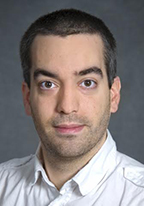 Didier Devaux, Ph.D.
Didier Devaux, Ph.D.
2016-2017 Philomathia Postdoctoral FellowDidier received an engineering degree in electrochemistry from Grenoble Institute of Technology in 2006. He then worked in the fuel cell domain, first at Arkema Inc. (USA) on electrochemical device characterizations followed by a period at the Clean Energy Research Centre (Yamanashi University, Japan) studying biofuel electrocatalysis. Then, he received a Ph.D. at Aix-Marseille University (France, 2012) in materials science on polymer electrolyte for lithium batteries before joining in 2013 the Balsara group at in the Department of Chemical and Biomolecular Engineering at UC Berkeley. In 2016 Didier was awarded a Philomathia Postdoctoral Fellowship to continue studies with Professor Nitash Balsara. His work focuses on i) lithium battery characterization and analysis of their failure modes by synchrotron X-ray microtomography and ii) characterization and optimization of a new class of nonflammable liquid polymer electrolyte based on perfluoropolyether for lithium battery application.
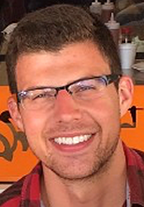 C. Michael McGuirk, Ph.D.
C. Michael McGuirk, Ph.D.
2016-2017 Philomathia Postdoctoral FellowMichael obtained his Ph.D. in chemistry from Northwestern University under the supervision of Prof. Chad Mirkin, where he focused on the development of bio-inspired strategies for the reversible regulation of function in stimuli-responsive supramolecular coordination constructs. Michael currently works for Prof. Jeff Long in the Department of Chemistry, focusing on the selective sequestration of carbon dioxide from exhaust waste streams and the realization of chemical approaches to transforming the sequestered gas into reusable hydrocarbon-based fuels. Although long-term approaches to curbing climate change broadly focus on renewable energy sources, until their full implementation there exists a great impetus to minimize the deleterious effects of burning fossil fuels, namely the production of the greenhouse gas carbon dioxide. Therefore, using a family of strategically designed highly porous metal−organic linker-based frameworks, Michael aims to develop energy-efficient strategies for the selective removal of carbon dioxide from large-scale point sources, such as coal-burning plants. Additionally, he aims to realize direct strategies to convert this captured waste into energy-rich fuels, such as methane and ethanol.
 Lina Qin, Ph.D.
Lina Qin, Ph.D.
2016-2017 Philomathia Postdoctoral FellowLina Qin is a Philomathia Postdoctoral Fellow in the Energy Biosciences Institute. She obtained her doctorate in Biochemistry and Molecular Biology from Institute of Microbiology, Chinese Academy of Sciences. Her doctoral dissertation research focused on the synthesis and secretion mechanisms of the cellulase cellobiohydrolase I (CBH1) in Trichoderma reesei and development of T. reesei as a highly efficient expression and protein production host.
Lina currently works with Professor N. Louise Glass on a project using system biology strategies to define the mechanism of plant cell wall deconstruction by the model filamentous fungus Neurospora crassa. She is currently focusing on deciphering the regulatory interaction between the SREBP pathway and the protein trafficking machinery based on a series of hyper-secretion mutants in which SREBP pathway is defective. Understanding the mechanism underlying the hyper-secretion phenotype will contribute to rationally engineering lignocellulolytic filamentous fungi to more efficiently secrete enzymes and proteins, reducing the expense in production of biofuels and specialty chemicals from lignocellulosic material.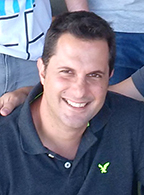 Nadav Sorek, Ph.D.
Nadav Sorek, Ph.D.
2016-2017 Philomathia Postdoctoral FellowNadav obtained his doctorate in Plant Biology at Tel Aviv University, where he focused on protein lipid modifications and their importance for protein targeting. Nadav currently works with Professor Chris Somerville on understanding the basic mechanisms of plant cell wall biosynthesis. Because plant cell walls are indispensable to plant growth and development and are very structurally complex, it has been challenging to understand how their chemical composition contributes to function, and the degree to which variation in composition is compatible with normal growth and development. By screening for genetic suppressors of mutations in the cobra gene of Arabidopsis, and cloning the corresponding genes, he has identified a family of novel proteins involved in the synthesis and organization of cell wall polymers and is studying how these proteins contribute to cell wall synthesis and function.
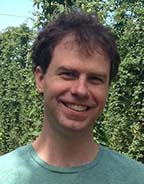 Trevor Yeats, Ph.D.
Trevor Yeats, Ph.D.
2015-2016 Philomathia Postdoctoral FellowTrevor is a Philomathia Postdoctoral Fellow at the Energy Biosciences Institute. He obtained his doctorate in Plant Biology at Cornell, where he focused on the biosynthesis of cutin, the major biopolymer constituent of the plant cuticle.
Trevor currently works with Professor Chris Somerville on the molecular machinery of cellulose biosynthesis. The controlled deposition and rearrangement of cellulose microfibrils defines the extent and direction of cell expansion and thus plant form from the cellular to organismal level. As the most abundant component of terrestrial biomass, cellulose is the most widely used renewable biomaterial, and is the main component of animal forage. The major industrial uses are paper, textiles (eg., cotton), and lumber. Cellulose is also envisioned as a renewable feedstock for liquid biofuels. Ultimately, a deeper understanding of cellulose synthesis and biomass structure will be essential in optimizing our utilization of these resources.
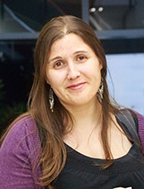 Tamara Vellosillo Armengol, Ph.D.
Tamara Vellosillo Armengol, Ph.D.
2014-2015 Philomathia Postdoctoral FellowTamara received her Ph.D. from The Universidad Autónoma de Madrid. Her dissertation research was concerned with Functional analysis of oxylipins, a family of lipid derivatives implicated in defense processes against pathogens and as signaling molecules in plant development. From 2014-15 she was a Philomathia Fellow studying plant cell wall synthesis with Professor Chris Somerville. She discovered and characterized a novel protein involved in vesicle trafficking of cellulose synthase complexes to the plasma membrane. Genetic studies showed that the protein is necessary for normal cellulose biosynthesis and building the complex structure of cell wall. She is currently a research scientist in the Carnegie Institution for Science at Stanford University.
 Padma Gunda, Ph.D.
Padma Gunda, Ph.D.
2012-2014 Philomathia Postdoctoral FellowDr. Gunda was a Philomathia Postdoctoral Fellow at the Energy Biosciences Institute at the University of California, Berkeley. She obtained her doctorate in Molecular & Cell Biology at UC Berkeley, and pursued her undergraduate studies in Mathematics and Biology at the Massachusetts Institute of Technology.
Dr. Gunda's Ph.D. thesis research has focused on plant biomass degradation by fungal enzymes, including the biophysical characterization of cellulases during hydrolysis, and the regulation of degradative enzyme production. As a Philomathia fellow she investigated the impact of advanced biofuels on water use, assessing the environmental and socioeconomic impacts during large-scale production and conversion of plant biomass to liquid fuel.
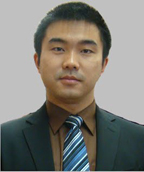 Hailiang Wang, Ph.D.
Hailiang Wang, Ph.D.
2012-2014 Philomathia Postdoctoral FellowDr. Wang was a Philomathia Postdoctoral Fellow in the Department of Chemistry. He received his Ph.D. degree in physical chemistry from Stanford University in 2012. His Ph.D. research was focused on development of inorganic/carbon hybrid materials for electrochemical energy storage and conversion.
Dr. Wang was a Philomathia Postdoctoral Fellow with Professor Gabor A. Somorjai on surface chemistry and catalysis of alcohol oxidation reactions in both gas and liquid phases. Controlled synthesis, reaction studies and in situ characterizations were combined to explore the catalytic performance, study the reconstruction of the catalysts under reaction conditions, and understand the chemical processes at solid/gas and solid/liquid interfaces.
He is currently on the faculty at Yale University, Department of Chemistry.
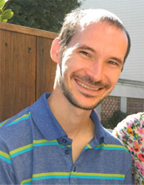 Rodrigo Noriega, Ph.D.
Rodrigo Noriega, Ph.D.
2012-2014 Philomathia Postdoctoral FellowDr. Noriega received his Ph.D. in Applied Physics from Stanford University, where he focused on combining advanced X-ray characterization tools with computer modeling and optical and electrical measurements to study the connection between microstructure and electronic properties of organic semiconductors, especially polymers.
As a Philomathia Fellow at UC Berkeley, Dr. Noriega studied with Professor Naomi Ginsberg to use the spatial capabilities of super-resolution microscopy and the time resolution of ultrafast laser spectroscopy to study energy flow in tunable biomimetic light harvesters. His goal has been to discover the fundamental mechanisms behind efficient long-range energy transfer as a step towards replicating natural photosynthetic processes in artificial systems with improved performance.
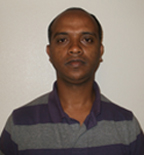 Solomon A. Asfaw, Ph.D.
Solomon A. Asfaw, Ph.D.
2011-2013 Philomathia Postdoctoral FellowDr. Solomon Abebe Asfaw received his undergraduate degree in Physics from Bahir Dar University, Bahir Dar, Ethiopia; an M.Sc. degree in Physics from the Norwegian University of Science and Technology, Trondheim, Norway; a second M.Sc. and Ph.D. degree specializing in energy system analysis from Ben-Gurion University of the Negev, Sede Boqer, Israel.
At UC Berkeley Dr. Asfaw worked with Professor Dan Kammen on a research project to help improve access to electricity in East Africa. The research points to limits of current planning models used for this region including (a) dependence on the largely suppressed historical demand as a proper indication of future demand in these countries (b) reliance on centralized generation and direct grid connection as means of electrification (c) emphasis on conventional generating resource types in power system planning studies (d) low consideration to the impact of national and regional electricity access policy (e) reliance on low spatial and temporal resolution data. He is currently the Senior Energy Officer at the African Development Bank, Ethiopia Country Office.
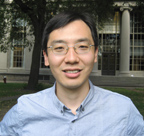 Sheng Shen, Ph.D.
Sheng Shen, Ph.D.
2011 Philomathia Postdoctoral FellowSheng Shen was a postdoctoral fellow in mechanical engineering with professor Xiang Zhang. Dr Shen received his Ph.D. in mechanical engineering at MIT in 2010. In 2011 Dr. Sheng accepted a faculty position at Carnegie Mellon University.
At UC Berkeley, Dr. Shen explored solar energy as one of the most promising sources to meet the world’s growing energy demand. Solar photovoltaic systems can convert directly photons to electrical power, but the main limitations with present solar cells are their high material cost and low conversion efficiencies. Another attractive solution to the energy problem is to harness heat sources such as geothermal heat, solar heat and waste heat dissipated in energy conversion processes. Thermoelectric and thermophotovoltaic systems are both capable of directly converting heat into electricity, but again, the main barrier is their low efficiency. With many advances in nanostructured materials and nanoscale designs, it is clear that nanoscale engineering will play an important role in resolving these issues for solar and thermal energy conversion.
Philomathia Forum on Energy and Environment
The Philomathia Forum on Energy and Environment is a series of symposia on topics related to contemporary issues concerning energy and the environment. The Philomathia Foundation has supported highly successful Philomathia Forums at UC Berkeley since 2009.
Past Symposia include:
2019: Port and Freight Decarbonization
2017: Data Science and Sustainability
2016: Cities and People: Responding to Global Warming
2013: Water, Climate, and Society: Challenges and Strategies in a Rapidly Changing World
2012: Where Is the Money? Unlocking Capital for Real Estate Energy Efficiency Improvements
2011: Green Chemistry: Collaborative Approaches & New Solutions
2010: Pathways to a Sustainable Energy Future
2009: China Workshop on Carbon Capture and Sequestration

